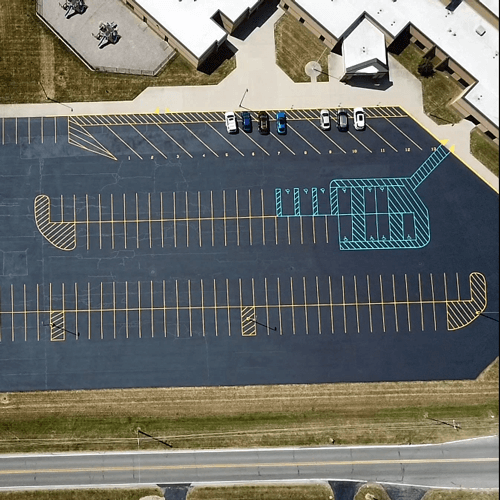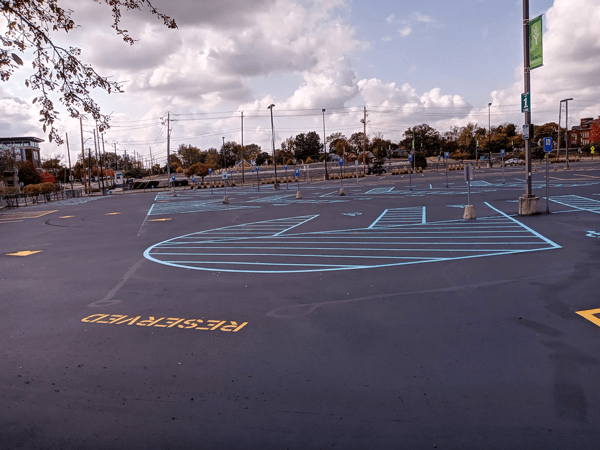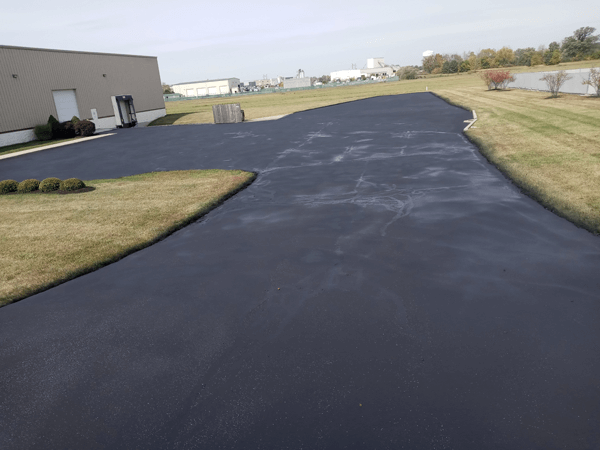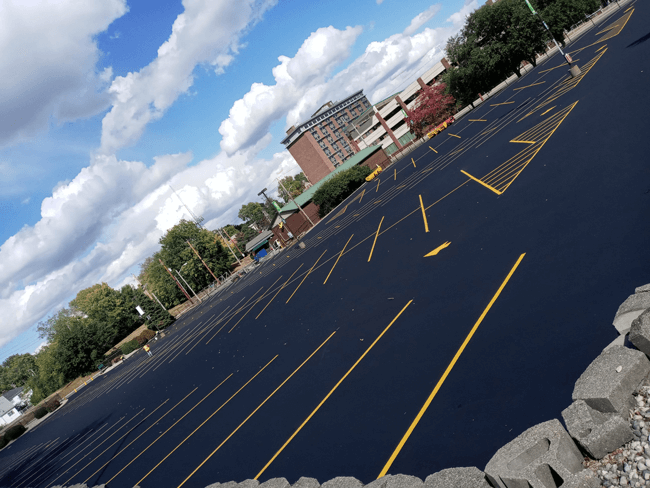Sealcoating a thin protective layer made of coal-tar pitch or asphalt cement that is combined with other fillers and additives. It restores and protects asphalt pavement from damage caused by UV rays, rain, snow, vehicle fluids and traffic. When it’s first laid, asphalt pavement has oils and binder that keep it together, but they deplete over time. Oils in the sealcoat replenish some of the depleted asphalt oils and binder, and the small sand-like particles in the sealcoat fill in the small cracks to make the surface more even again.
PAVING & SEALCOATING
WHY TO SEALCOAT
Sealcoating asphalt pavement prolongs your asphalt’s integrity, reduces your repair costs and preserves your business’s curb appeal. Sealcoating companies, such as DC Construction, offer services to make your paved surfaces look brand new again.
The sealcoating process only takes a few days to complete, and DC Construction sealcoats your paved area in sections so your visitors can still maintain close proximity to your building. Choose between a one-time service or a well-planned maintenance program to meet your needs.
TYPES OF SEALCOATING
Slurry Sealcoating
Slurry sealcoating is common for roads and parking sealcoating. A slurry seal consists of a mix of asphalt emulsion, fine sand, and water and protects and renews mildly worn pavement.
Fog Sealcoating
WHERE TO SEALCOAT
DC Construction sealcoats a variety of asphalt pavement applications, including:
- Parking lot sealcoating
- Roads
- Recreational trails for biking and running




